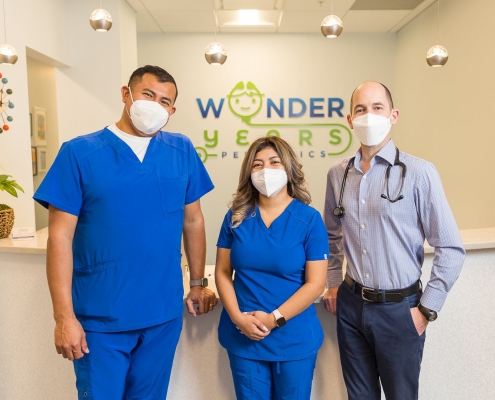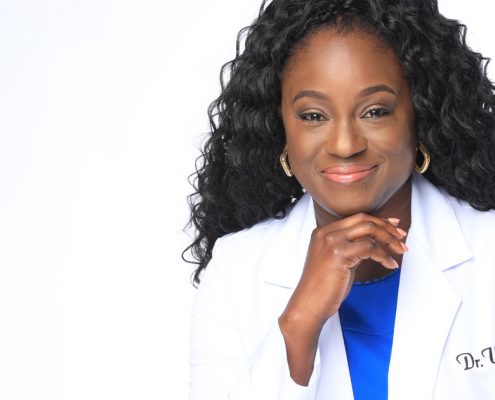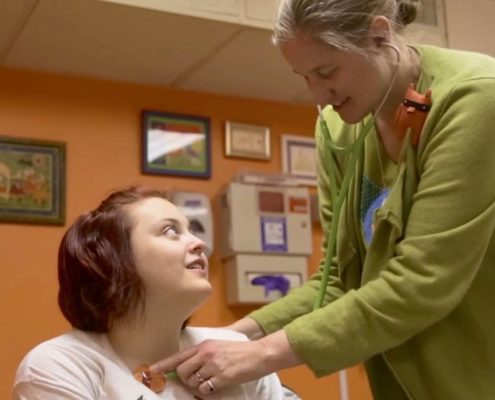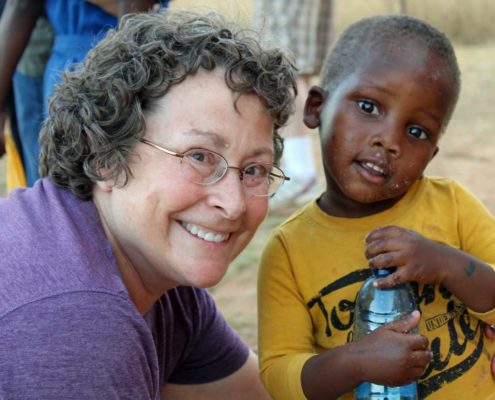Tag Archive for: Patient Outcomes

Eating Disorders and the COVID-19 Pandemic
In the wake of the COVID-19 pandemic, the number of children in the United States presenting with an eating disorder skyrocketed. We talk to a range of eating disorder experts across the country about what they’ve seen over the past three years and how pediatricians are critical partners in both treating patients and advocating for improvements to the system.

Pediatricians and Autism Spectrum Disorder: The Path to a Medical Home
An expert in the field of early brain and child development, Dr. Colleen Kraft has in many ways helped to steer the conversation about how to best care for children who experience developmental differences like autism spectrum disorder. She is focused on an important message: Primary care pediatricians can and should be a driving force on the team caring for a child with ASD. They are key to getting kids into services as early as possible, which helps to improve outcomes.

Lessons from the Pandemic: Opening the Doors During COVID-19
When he made plans to open an independent practice in the spring of 2020, Dr. Scott Wissman could never have predicted the Covid-19 pandemic. Dr. Wissman discusses the challenges, triumphs, and poignant lessons of opening a practice during a global pandemic.

Serving the Whole Family Through Developmental Pediatrics
Dr. Mark Moncino is passionate about offering specialized care to children with developmental differences. Inspired by his personal journey with dyslexia, Dr. Moncino founded the Georgia Center for Autism and Developmental Pediatrics. He tells the story of discovering the holes in developmental screening and treatment, and his road to starting his own practice.

Finding the Middle Way with Kids and Digital Media
The impacts of digital media use on children, both positive and negative, are increasingly visible as Generation Z comes of age. How do different types of media affect childhood brain development, and what can pediatricians do to help kids build healthy relationships with their screens?

Collaboration and Cooperation: Integrating Mental Health Care into a Pediatric Practice
At Parker Pediatrics and Adolescents in Colorado, Dr. Jay Rabinowitz took a leap into the unknown by bringing licensed mental health professionals into his practice as employees. Dr. Mark Harris went on a similar journey in Vermont, where he integrated mental health services into his practice, Upper Valley Pediatrics, in the 1990s. In both locations, integrated mental health care has been beneficial for patients and providers, filling a dire need in the community.

Education, Relationships, and Expert Care: Dr. Nneka Unachukwu’s Approach to Independent Pediatrics
From the University of Nigeria to her independent practice in Georgia, Dr. Nneka Una shares important lessons from a rich career in medicine. She offers her approach to independent practice management, whole-child care, and professional coaching—an approach that is grounded in strong relationships and education.

From the Exam Room to the Classroom
All students with disabilities in the United States are legally guaranteed individualized special education services, so that they have the opportunity to learn and succeed, yet many schools fail to properly help these struggling children. Dr. Adrienne Classen of North Carolina steps up to fight for these students’ rights.

Passing the Baton: Keeping Your Practice Independent When You Retire
After almost 40 years in independent practice, Dr. Douglas Coombs wanted someone who would carry the practice’s vision, work well with current staff, and show up with the most up-to-date processes and practices, all skills possessed by Dr. Bonnie Feola.

Caring for Children in Swaziland
In 2015, Dr. Rita Fox traveled to the rural village of Ekudzeni, in Swaziland, to set up and staff a medical clinic. She has since returned two more times to provide medical care to the community, building lasting relationships with a generation of children who have lost parents and family members to HIV/AIDS.

